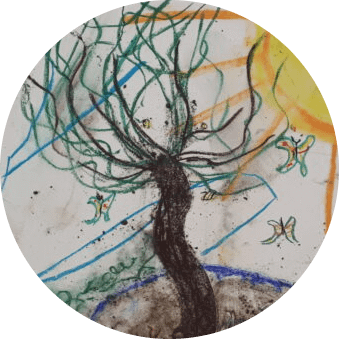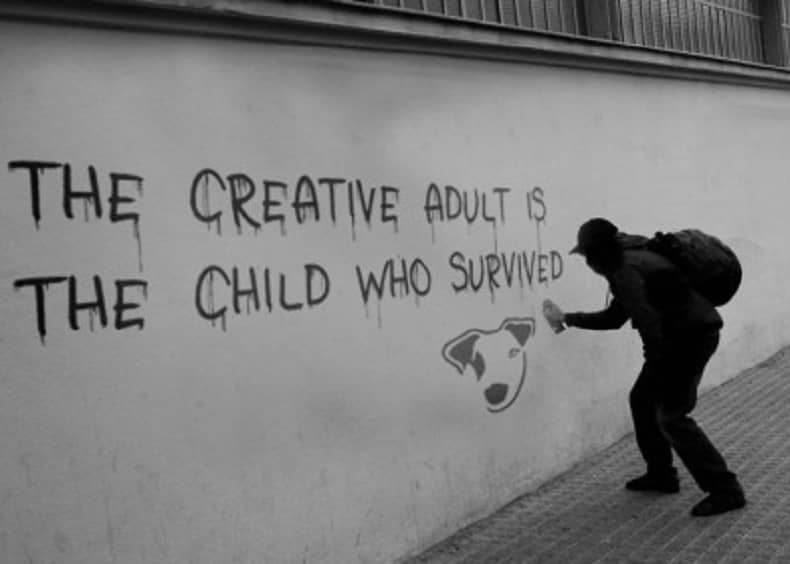A DRAMATHERAPY INTERVENTION
- working with stories and poetry
- exploring feelings through conscious movement and music
- ritual structures and mask-making
- guided meditation and breath work
- creating images with objects or art
All of these artistic interventions are based on the evidence that the use of creativity can allow for unconscious material to be explored and new connections to be made. The emphasis is always on the experience of the individual and not on artistic results, therefore, experience of the creative arts is not needed.


OFTEN LEADS TO
- Building self confidence
- Strengthening of a sense of self
- Strengthening of co-operation and communication
- Developing and strengthening social skills
Dramatherapy sessions are structured and contained, but always different, as the dramatherapist always follows and is guided by the creativity of the clients. The structure of the sessions include a clear beginning, middle and end. Individual sessions in a clinical setting usually last one hour. Group sessions last between one hour to an hour an a half, depending on the group size and the client group.
WHY DRAMATHERAPY?
Dramatherapy offers a variety of working methods that are applicable to a wide variety of clients. It can help the process of emotional growth through the development of trust, risk-taking and the experience of different ways of being. The role of the Dramatherapist is to provide a safe, supportive space to enable and encourage the clients to express themselves in whatever way they are able, providing an opportunity to process the difficulties of life in a creative, safe, secure and supportive space. Dramatherapy allows the client to explore and ‘just be’ who they are within the therapeutic session. Through creative expressive activities, clients can explore and hope to find within themselves the means to understand key aspects of their lives.
Dramatherapy can be beneficial in working with issues such as:
- Depression and anxiety.
- Trauma
- Confidence and self-esteem.
- Addiction/eating disorder.
- Bereavement and loss.
- Personal development/difficult transitions.


DRAMATHERAPISTS
Dramatherapists are both artists and clinicians who draw on their training in theatre/drama and therapy to create methods to engage clients in effecting psychological, emotional and social change. The therapy gives equal validity to body and mind within the dramatic context; stories, myths, play text, ritual, masks and improvisation are examples of the range of artistic interventions a Dramatherapist may employ. A dramatic talent is not necessary for participation and the emphasis is not on performance but on the experience of the group or individual. The role of the Dramatherapist is to develop a programme with appropriate aims, objectives and structures to meet the needs and abilities of the client/s. British Association of Dramatherapists

